
Add some of these healthy foods to your diet to help prevent cancer and keep other diseases at bay.
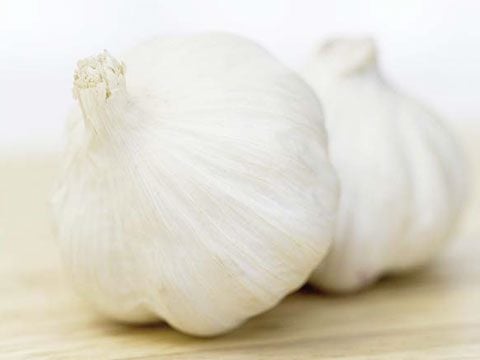
© Stockbyte/Thinkstock
1. Add garlic to everything you eat.
Garlic contains sulfur compounds that may stimulate the immune system’s natural defenses against cancer, and may have the potential to reduce tumor growth. Studies suggest that garlic can reduce the incidence of stomach cancer by as much as a factor of 12!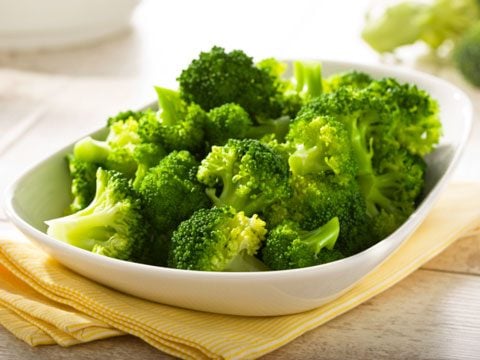
© iStockphoto /Thinkstock
/Thinkstock
 /Thinkstock
/Thinkstock2. Eat your fill of broccoli, but steam it rather than microwaving it.
Broccoli is a cancer-preventing superfood, one you should eat frequently. But take note: A Spanish study found that microwaving broccoli destroys 97 percent of the vegetable’s cancer-protective flavonoids. So steam it, eat it raw as a snack, or add it to soups and salads.
© iStockphoto/Thinkstock
3. Toast some Brazil nuts and sprinkle over your salad.
They’re a rich form of selenium, a trace mineral that convinces cancer cells to commit suicide and helps cells repair their DNA. A Harvard study of more than 1,000 men with prostate cancer found those with the highest blood levels of selenium were 48 percent less likely to develop advanced disease over 13 years than men with the lowest levels. And a dramatic five-year study conducted at Cornell University and the University of Arizona showed that 200 micrograms of selenium daily — the amount in two unshelled Brazil nuts — resulted in 63 percent fewer prostate tumors, 58 percent fewer colorectal cancers, 46 percent fewer lung malignancies, and a 39 percent overall decrease in cancer deaths.
© Jupiterimages/liquidlibrary/Thinkstock
4. Make a batch of fresh lemonade or limeade.
A daily dose of citrus fruits may cut the risk of mouth, throat, and stomach cancers by half, Australian researchers found.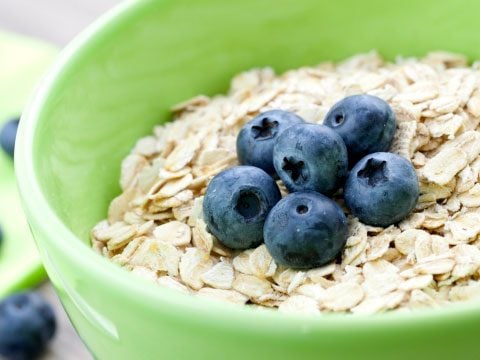
© Zoonar/Thinkstock
5. Mix half a cup of blueberries into your morning cereal.
Blueberries rank number one in terms of their antioxidant power. Antioxidants neutralize free radicals, which are unstable compounds that can damage cells and lead to diseases including cancer.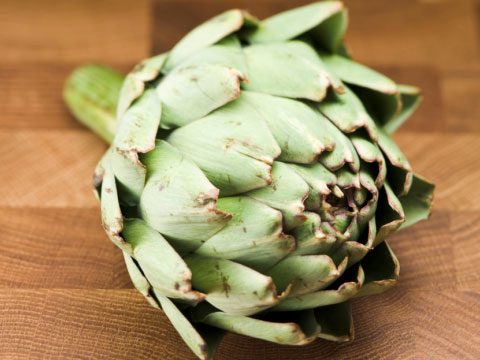
© iStockphoto/Thinkstock
6. Learn to eat artichokes tonight.
Artichokes are a great source of silymarin, an antioxidant that may help prevent skin cancer. To eat these delicious veggies, peel off the tough outer leaves on the bottom, slice the bottom, and cut off the spiky top. Then boil or steam until tender, about 30-45 minutes. Drain. Dip each leaf in a vinaigrette or garlic mayonnaise, then gently tear the fibrous covering off with your front teeth, working your way inward to the tender heart. Once there, gently scoop the bristles from the middle of the heart, dip in a little butter or lemon juice, and enjoy!
© Hemera/Thinkstock
7. Throw some salmon on the grill tonight.
Australian researchers studying Canadians (go figure) found those who ate four or more servings of fish per week were nearly one-third less likely to develop the blood cancers leukemia, myeloma, and non-Hodgkin’s lymphoma. Other studies show a link between eating fatty fish (salmon, mackerel, halibut, sardines, and tuna, as well as shrimp and scallops) with a reduced risk of endometrial cancer in women. Ah, those amazing omega-3s at it again!
in women. Ah, those amazing omega-3s at it again!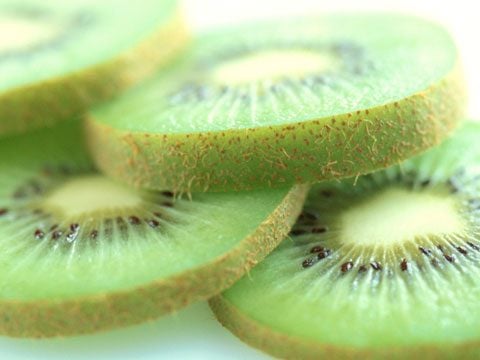
© Stockbyte/Thinkstock
8. Cut a kiwifruit in half, then scoop out the flesh with a spoon.
Now eat! Kiwi is a little hand grenade of cancer-fighting antioxidants, including vitamin C, vitamin E, lutein , and copper. You can also rub a couple of cut kiwifruit on a low-fat cut of meat as a tenderizer.
, and copper. You can also rub a couple of cut kiwifruit on a low-fat cut of meat as a tenderizer.
© iStockphoto/Thinkstock
9. Sprinkle scallions over your salad.
A diet high in onions may reduce the risk of prostate cancer 50 percent. But the effects are strongest when they’re eaten raw
or lightly cooked. So try scallions, Vidalia onions, shallots, or
chives for a milder taste.
cancer 50 percent. But the effects are strongest when they’re eaten raw
or lightly cooked. So try scallions, Vidalia onions, shallots, or
chives for a milder taste.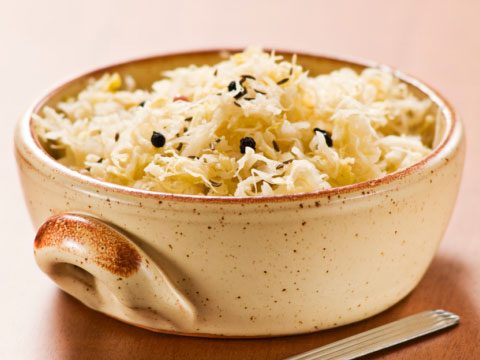
© Hemera/Thinkstock
10. Serve sauerkraut.
A Finnish study found that the fermentation process involved in making sauerkraut produces several other cancer-fighting compounds, including ITCs, indoles, and sulforaphane. To reduce the sodium content, rinse canned or jarred sauerkraut before eating.Source: http://www.rd.com/slideshows/10-foods-to-help-prevent-cancer/?v=print



